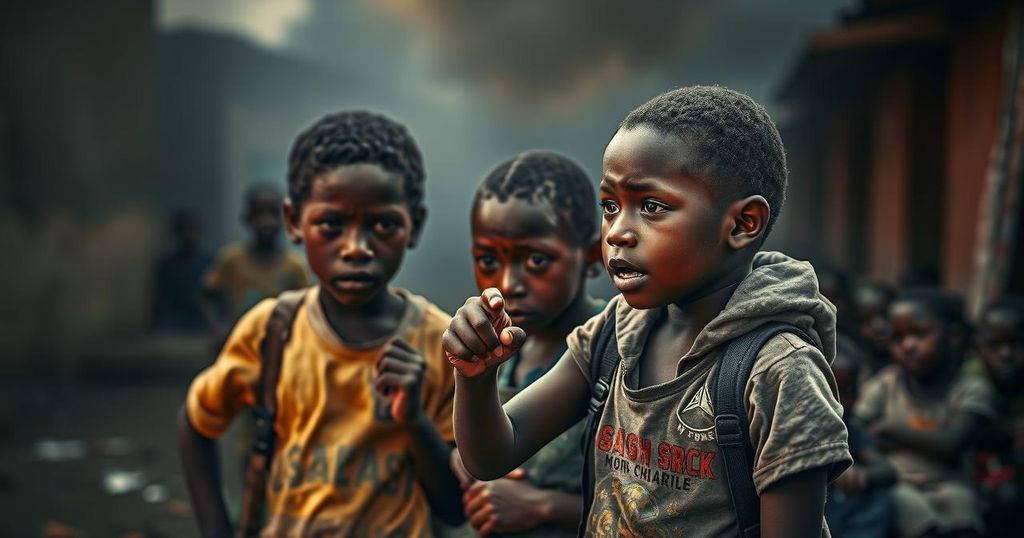Children as Combatants: The Plight of Child Soldiers in DRC’s Ongoing Conflict
In the DRC, children are increasingly recruited as soldiers amidst ongoing conflicts, particularly with the M23 group. Many children, like Constance and Martin, flee their homes to join militias for economic reasons but are met with violence and abuse. Experts estimate that a significant fraction of armed group members are minors, prompting urgent calls for intervention. Despite some reintegration efforts, many children remain at risk, highlighting the need for comprehensive solutions to this persistent issue.
In the Democratic Republic of the Congo (DRC), the ongoing conflict has tragically transformed children into combatants, with young individuals like 14-year-old Constance recounting their harrowing experiences of war. Having joined the Alliance of Patriots for a Free and Sovereign Congo (APCLS) at the age of 13, Constance sought relief from poverty but faced brutality, including corporal punishment and forced labor. Displaced by violence, she ultimately escaped to a displacement camp in Goma, yearning for an end to the turmoil. The DRC has a long history of child soldier recruitment, particularly in the North Kivu province, where armed groups have proliferated since regional conflicts in the 1990s. Recent escalations in the M23 conflict have exacerbated this issue, with organizations known to recruit children as young as ten. In a region riddled with violence and poverty, children frequently fall victim to exploitation as they seek survival amidst dire circumstances. Acknowledging the alarming increase, experts assert that the number of children involved in armed combat remains significantly underreported. Children, often seeking financial stability, join militias like Martin did at age 13, only to face a brutal existence marked by deprivation and danger. While some may escape and receive assistance, many others remain victimized, living either in hiding or under continued threats. Programs aimed at demobilization can provide a lifeline, yet many continue to grapple with the aftermath of their experiences in the conflict. Efforts to address the plight of child soldiers in the DRC include vocational training and reintegration programs facilitated by NGOs, with mixed success. Individual stories, such as those of Modeste and Gilbert, illustrate the struggles and triumphs of children once caught in the cycle of violence. Despite forming bonds with aid workers and other survivors, these young individuals are acutely aware of the peril that permeates their surroundings, with a commitment to ensuring that future generations do not endure similar hardships.
The conflict in the Democratic Republic of the Congo has persisted for decades, primarily affecting marginalized and impoverished communities in eastern regions such as North Kivu. The legacy of earlier wars has cultivated a pervasive environment where child soldier recruitment has become alarmingly commonplace. Recent reports highlight a resurgence in this practice, particularly with the emergence of the M23 armed group, supported by external forces. With a significant number of children engaged in these conflicts, the humanitarian crisis is compounded by the need for urgent intervention and support for affected youth.
The tragic reality of child soldiers in the DRC underscores a humanitarian crisis necessitating immediate action. While programs for demobilization and reintegration have made strides in assisting some young survivors, the broader issue remains unaddressed, with thousands of children still vulnerable to exploitation and violence. Greater international attention and resources are paramount to protect these populations and foster lasting peace in the region.
Original Source: www.theguardian.com




Post Comment